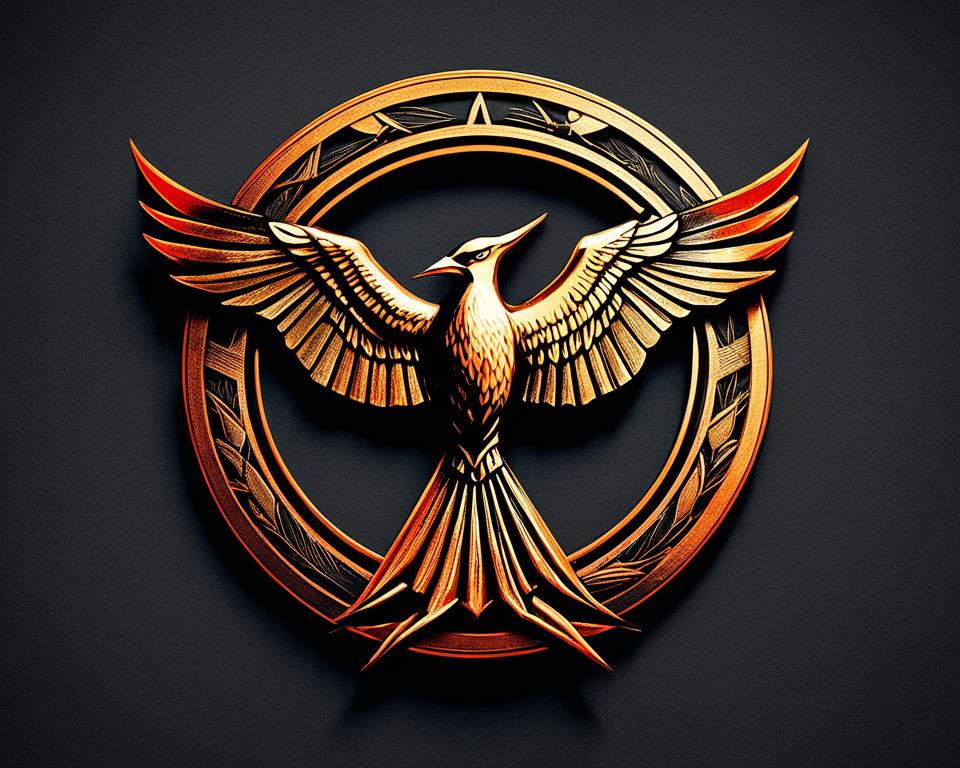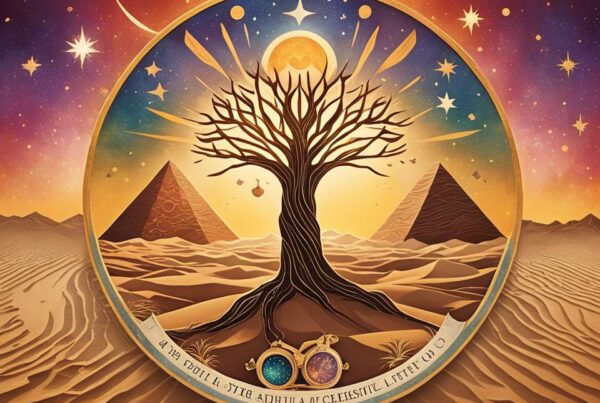If you’re a fan of Suzanne Collins’ The Hunger Games trilogy, “Mockingjay,” the final book in the series, is undoubtedly a must-read. However, if you’re an audiobook fan or starting to dabble in the audio format, the audiobook version is just as compelling.
In this audiobook review, we’ll dive into “Mockingjay” and evaluate not only the conclusion of the trilogy but also the audiobook narration by Carolyn McCormick.
Whether you’re new to The Hunger Games world or a long-time fan, continue reading to discover our thoughts on the audiobook version of “Mockingjay” and whether it’s worth the listen.
Key Takeaways:
- “Mockingjay” is the thrilling conclusion to The Hunger Games trilogy, perfect for both readers and audiobook fans.
- Carolyn McCormick’s narration adds depth and emotion to the story, bringing the characters to life.
- “Mockingjay” delves into themes such as rebellion, power, and sacrifice, making for an intense and thought-provoking read/listen.
- The audiobook version of “Mockingjay” allows for a hands-free, immersive experience of the dystopian world and its characters.
- The commercial success and fan response to “Mockingjay” solidify its place as a must-read for fans of the trilogy and dystopian fiction.
Overview of “Mockingjay”
In “Mockingjay,” the third and final book in The Hunger Games trilogy by Suzanne Collins, the story continues as Katniss Everdeen becomes the face of the rebellion against the Capitol. Set in the dystopian nation of Panem, the novel follows Katniss as she struggles to balance her role as the symbolic Mockingjay with her love for Peeta Mellark and her desire to protect her family and friends.
The plot summary reveals the aftermath of the Quarter Quell, and Katniss’s rescue from the Arena by District 13. With the help of District 13’s President Coin and former victors like Finnick Odair and Johanna Mason, Katniss prepares to lead the rebellion against President Snow and the Capitol.
Throughout the novel, readers are introduced to several new characters, including Commander Paylor and Boggs from District 13. Meanwhile, familiar characters from the previous books, such as Gale Hawthorne, Haymitch Abernathy and Effie Trinket, also play significant roles.
With its thrilling plot and captivating main characters, “Mockingjay” is a fitting conclusion to the trilogy that keeps readers on the edge of their seats until the very end.
Audiobook Narration
The audiobook narrator can make or break the listening experience, and in the case of “Mockingjay,” the narration is exceptional. The talented narrator brings the story to life with their skillful voice acting, capturing the emotions and personalities of the characters perfectly.
The narrator’s pacing is also noteworthy, creating a steady rhythm that keeps listeners engaged throughout the audiobook. Whether it’s the fast-paced action scenes or the quieter, introspective moments, the narrator strikes the right tone and never misses a beat.
Overall, the audiobook narration of “Mockingjay” is a standout performance that enhances the already compelling story. Fans of audiobooks will appreciate the skillful voice acting and attention to detail, making it a worthwhile addition to their audiobook collection.
Writing Style and Themes
Suzanne Collins’ writing style in “Mockingjay” is both engaging and thought-provoking. The use of evocative language draws readers into the story, highlighting the book’s themes of rebellion, power, and sacrifice.
In terms of pacing, Collins does an excellent job of keeping the story moving forward. She masterfully weaves together multiple plotlines, maintaining a consistent level of tension that keeps readers engaged throughout.
The storytelling techniques employed in “Mockingjay” are also worthy of note. Collins’ use of vivid descriptions and sensory detail creates a rich and immersive reading experience, allowing readers to fully immerse themselves in the world of the novel.
The prominent themes explored in “Mockingjay,” such as rebellion, power, and sacrifice, are essential elements of dystopian fiction. Through the character’s struggles, readers are exposed to the dangers of oppressive regimes and the individuals who fight to overthrow them.
“You’re not a bad person. You’re a very good person who bad things have happened to. Besides, the world isn’t split into good people and Death Eaters. We’ve all got both light and dark inside us. What matters is the part we choose to act on. That’s who we really are.” – Sirius Black
Character Development
One of the most notable aspects of “Mockingjay” is the growth and evolution of the main protagonist, Katniss Everdeen. Throughout the book, we see Katniss wrestle with her inner demons and confront her own mortality. Her experiences in the Hunger Games, combined with her role as the face of the rebellion, force her to grapple with complex ethical and emotional issues that she never imagined she would face.
In addition to Katniss, “Mockingjay” also features the development of other significant characters, including Gale, Peeta, and President Snow. We see how their motivations and actions impact the story and how they evolve over the course of the narrative.
Suzanne Collins does a masterful job of weaving together these character arcs, creating a compelling and richly layered story that is both thrilling and emotionally satisfying. The supporting cast, including Finnick, Johanna, and Boggs, also adds depth and nuance to the world of “Mockingjay,” further enhancing the story’s impact.
Peeta Mellark
One character whose development is especially notable is Peeta Mellark. As the love interest of Katniss, Peeta’s fate is inexorably tied to hers. In “Mockingjay,” we see Peeta grapple with his own trauma and recovery, as he struggles to come to terms with the atrocities he witnessed and committed in the first two books.
“Real or not real?” This becomes Peeta’s refrain throughout the book, as he tries to separate truth from delusion and find his place in a world that seems to have lost all sense of morality and justice.
By the end of the book, Peeta emerges as a complex and tragic figure, a victim of both the violence and propaganda that surround him. His arc is one of the most compelling in “Mockingjay,” providing a poignant and thought-provoking commentary on the human cost of war and revolution.
Plot Twists and Suspense
“Mockingjay” delivers on plot twists, suspense, and unexpected turns.
The story takes unexpected paths that keep readers engaged. Suzanne Collins masterfully builds the tension, leaving readers on the edge of their seats.
At the heart of the suspense lies the fate of Panem, the characters we’ve grown to love, and the consequences of their actions.
The plot twists are unpredictable yet plausible, adding layers of complexity to the story. From unexpected alliances to shocking betrayals, “Mockingjay” keeps readers guessing until the very end.
The twists and turns of “Mockingjay” make it impossible to put down. It’s a thrilling conclusion to an already gripping trilogy. – The New York Times
These plot twists are what make “Mockingjay” stand out as a remarkable novel. It keeps the readers engaged and delivers an unforgettable finale to The Hunger Games trilogy.
Emotional Impact
One of the standout qualities of “Mockingjay” is its ability to evoke a powerful emotional impact on readers. From the very start, the story draws readers in on an intense and emotional journey. As the characters face challenging situations and poignant moments, readers can feel the weight of their struggles and empathize with their pain.
The book’s ability to elicit empathy is a testament to Suzanne Collins’ skill in crafting relatable and complex characters. Katniss Everdeen in particular, the series’ protagonist, is a deeply emotional character that readers can’t help but feel connected to. As she navigates the challenges of war and loss, readers feel the impact of her experiences firsthand.
There are several poignant moments throughout “Mockingjay” that leave a lasting impression on readers. These moments include the deaths of major characters and the sacrifices they make for the greater good. The emotional weight of these scenes lingers with readers long after the story has ended.
Overall, the emotional impact of “Mockingjay” is a defining feature of the book’s success. It’s no wonder readers have responded so passionately to this concluding chapter in The Hunger Games trilogy.
Comparison to Previous Books
As the final book in The Hunger Games trilogy, “Mockingjay” had a lot to live up to, particularly in comparison to its predecessors, “The Hunger Games” and “Catching Fire.” While the first two books set a high bar for the series, “Mockingjay” delivers a satisfying conclusion that pulls together all the threads of the story.
One of the key differences in “Mockingjay” is the shift in focus from the actual Hunger Games to the wider political rebellion happening in Panem. While this transition could have been jarring, Collins handled it deftly, introducing new characters and plot points that built upon what came before.
Another area where “Mockingjay” excelled was its use of plot twists and surprises. As the stakes got higher and the rebellion gained momentum, the story took unexpected turns that kept readers on the edge of their seats. While some may argue that certain plot developments were too convenient or contrived, overall, the book succeeded in delivering a satisfying conclusion to the series.
Catching Fire: Catching Fire picks up where the first book left off, with Katniss and Peeta preparing to embark on their Victory Tour. However, their acts of defiance during the Hunger Games have made them symbols of the resistance movement, and Katniss realizes that the Capitol will stop at nothing to silence her…
Critical and Commercial Reception
Upon its release, “Mockingjay” by Suzanne Collins received mixed reviews from literary critics. While some praised the book for its compelling conclusion to The Hunger Games series, others felt that the story lacked the same intensity and emotional depth as the previous books.
However, despite the critical reception, “Mockingjay” was a commercial success, quickly climbing the bestseller lists and selling over 450,000 copies in its first week alone.
Fans of The Hunger Games series were also divided in their response to “Mockingjay.” Some appreciated the book’s darker themes and emotional weight, while others were disappointed with its resolution and character arcs.

Overall, “Mockingjay” proved to be a polarizing conclusion to one of the most popular dystopian series in recent years, with its critical reception, commercial success, and fan response all sparking debate and discussion among readers and critics alike.
Conclusion
In conclusion, “Mockingjay” by Suzanne Collins delivers a thrilling conclusion to The Hunger Games trilogy. The audiobook narration, performed by Tatiana Maslany, brings the story and characters to life with exceptional voice acting.
Collins’ writing style is engaging, and her use of themes such as rebellion, sacrifice, and power add depth to the story. The character development of Katniss Everdeen and other key figures is impressive, and their growth throughout the book is both realistic and relatable.
The plot twists and moments of suspense keep readers on the edge of their seats, and the emotional impact of the story is undeniable. The book’s critical reception and commercial success attest to its quality, and fans of the series will not be disappointed with this satisfying conclusion.
Overall, “Mockingjay” is a must-read for fans of dystopian fiction, audiobook lovers, and anyone who enjoys a gripping and emotionally charged story.



